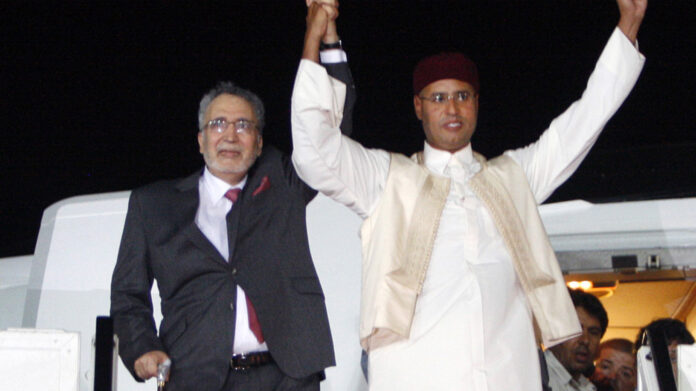LONDON: Prosecutors in Scotland and the US feared their case against the Libyan man convicted of the Lockerbie bombing would collapse if their concerns over the integrity of a star witness were made public, declassified documents have revealed.
Papers released on Tuesday showed that American and Scottish officials had privately raised doubts over the reliability of a man whose testimony was central to securing the prosecution of Abdelbaset Ali Al-Megrahi, a Libyan intelligence officer, for the 1988 Lockerbie bombing.
Al-Megrahi was sentenced to 27 years behind bars by a Scottish court after being found guilty of masterminding the 1988 bombing of an aircraft over Lockerbie, Scotland, that killed 270 people.
The testimony of Tony Gauci — a Maltese shopkeeper who claimed he sold clothing believed to have been used to wrap the bomb to a man resembling Al-Megrahi — was pivotal in securing his conviction in 2001.
But the new information, disclosed on the 33rd anniversary of the attack, has renewed calls for an appeal against the Libyan’s conviction.
Hans Koechler, who served as the UN’s independent observer at his trial, said: “I am even more convinced that a miscarriage of justice occurred.”
A report of a meeting between Alan Rodger, then Scotland’s lord advocate, and Robert Mueller, then the US assistant attorney-general, in Washington in 1992, reads: “If it became known we or the US were sending people to check on the soundness of Gauci’s identification, that would signal that we did not have a case on which we could confidently go to trial. The US Department of Justice maintained that they could not go to trial on the present identification.”
Gauci was the sole witness who linked Al-Megrahi directly to the bombing. In 2000, he told judges that Al-Megrahi “resembled a lot” a man who bought clothes from his shop.
But a 1992 letter from the Crown Office to Mueller raised doubts about that claim. “Further inquiries concerning the identification made by the shopkeeper Gauci could be seized upon by those in Malta, Libya and elsewhere hostile to the conclusions of the investigation.”
In 2007, it emerged that the US had paid $2 million to Gauci.
Al-Megrahi was released from prison in 2009 and died of cancer in 2012.
Robert Black, professor emeritus of Scots law at Edinburgh University, who masterminded the trial, told The Times: “It is now more obvious than ever that the Megrahi conviction is built on sand. An independent inquiry should be instituted into the case by the Scottish government, the UK government or both.”

